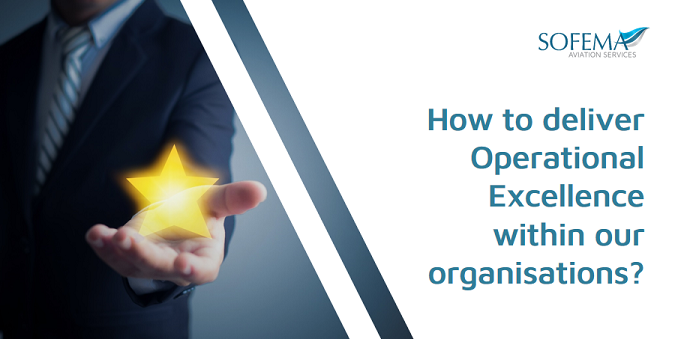Sofema Online (SOL) www.sofemaonline.com looks at how we can deliver operational excellence within our organisations.
Introduction
Each Business has its own particular set of challenges, some are unique, and some are shared with other organisation in the same industry niche. Challenges can be either external or internal.
Some challenges can be disruptive in a major way – new technology and innovation being typical examples.
Culture is the Key! – With Operational Excellence the focus moves beyond the traditional event-based model of improvement, toward a long-term change in organizational culture.
In essence, we can say that Operational Excellence is driven by the executive or leadership team employing a variety of process methodologies and tools.
The common theme is a focus on the continuous and sustainable improvement of outstanding performance metrics.
Addressing the Threat of New Competition!
The seriousness of any business threat depends on several elements including the barriers to actually deliver meaningful competition. In fact the higher these barriers to entry, the smaller the threat for existing players.
Barrier examples include:
- Economies of scale,
- Customer loyalty related to existing brands,
- The need for capital investment included Research & Development and Marketing,
- Organisational Skill Set & Competence.
The threat to our business of new competition with the possibility of new business models can lead to increased customer expectations as well as to generate additional customer expectations.
How to Deliver Excellence?
Companies who are focused on delivering Operational Excellence are able to engage with the following two things which make a significant difference:
- To manage the business and operational processes systematically.
- To invest in developing the right culture.
The results of achieving operational excellence can be seen through improvements in the following areas:
- Strong Integrated performance across revenue, cost, and risk.
- Focus on meeting customer expectations.
- Continuous improvement of the operational processes.
- The willingness to work to develop the culture of the organization.
- A strong Organisational Culture should be built on the principles of:
o Integrity,
o Questioning attitude,
o Willingness to engage with problem-solving,
o A continuous improvement mindset,
o Level of knowledge,
o Teamwork,
o Process driven.
Summary – Travelling The path to Operational Excellence
Consider the Following Objectives for a successful outcome:
- Alignment of the organisations strategy and culture
- Harmonization between the team members and the objectives
- Enhanced decision-making performance
The Journey to excellence typically involves the following key steps:
- Dedication
- Patience
- Understanding of Continuous Improvement
- Efficient implementation of strategies
Next Steps
Sofema Online introduces a new series of courses focused on the development of Soft Skills Aviation Leadership and Management Skills Development – see here for details of our Aviation Leadership Diploma:
Tags:
aviation, Aviation Leadership, Management Skills, Aviation Leadership and Management Skills, SAS blogs, Leadership skills, Aviation Leadership Diploma, Operational Excellence, Operational Innovation





